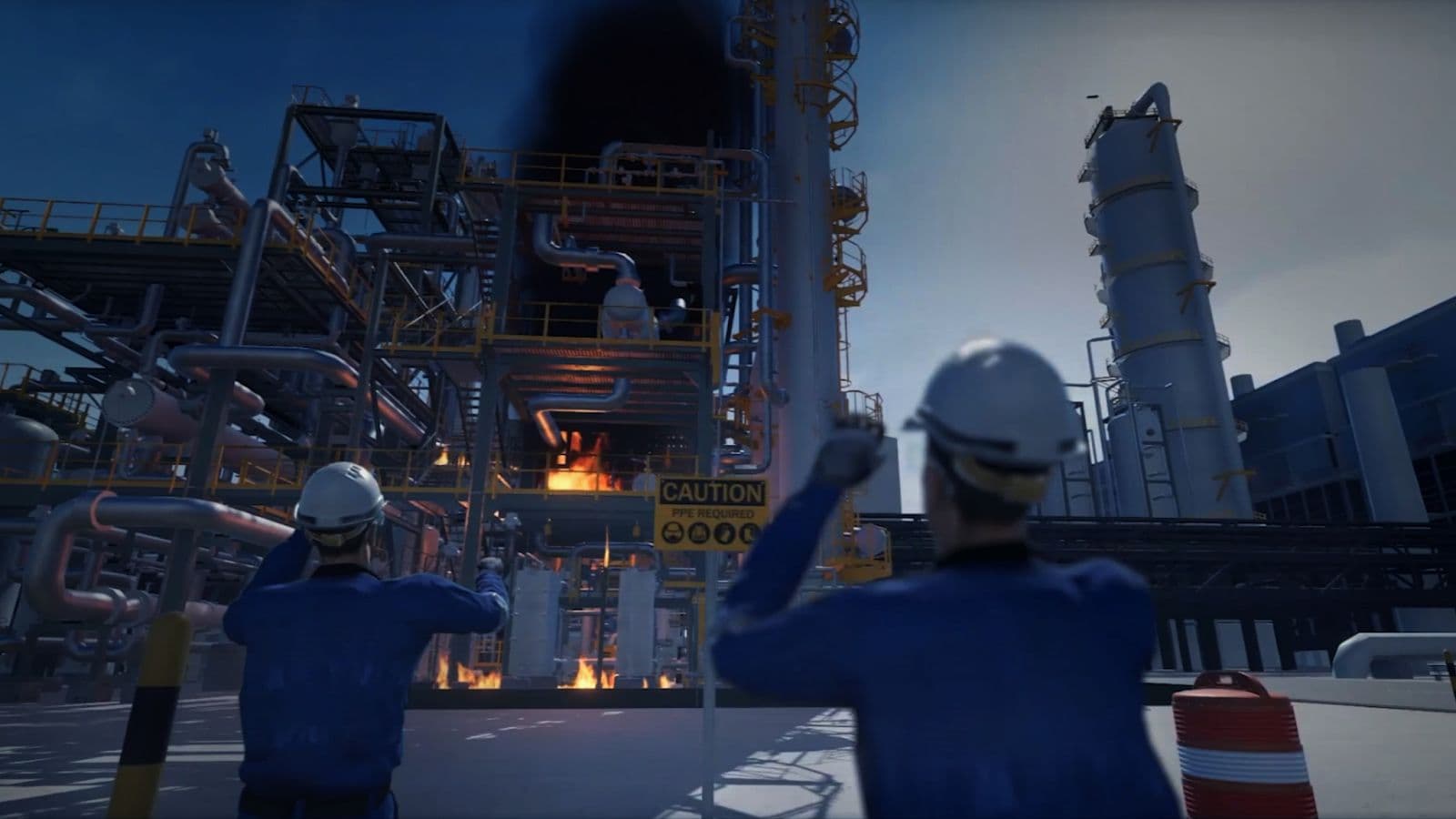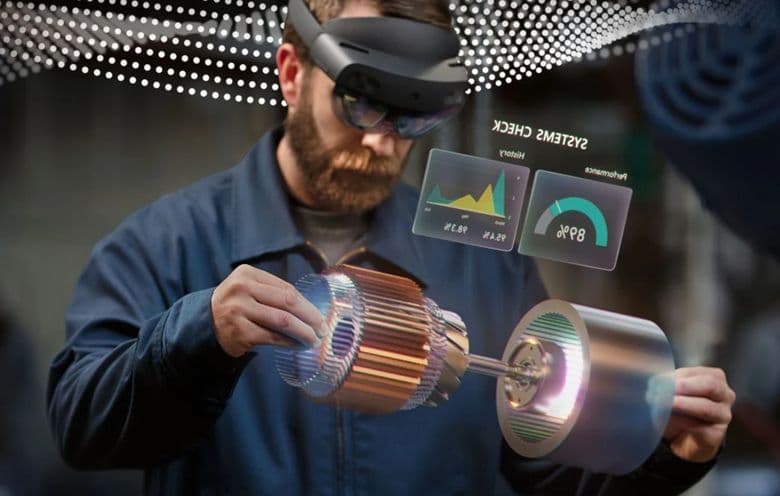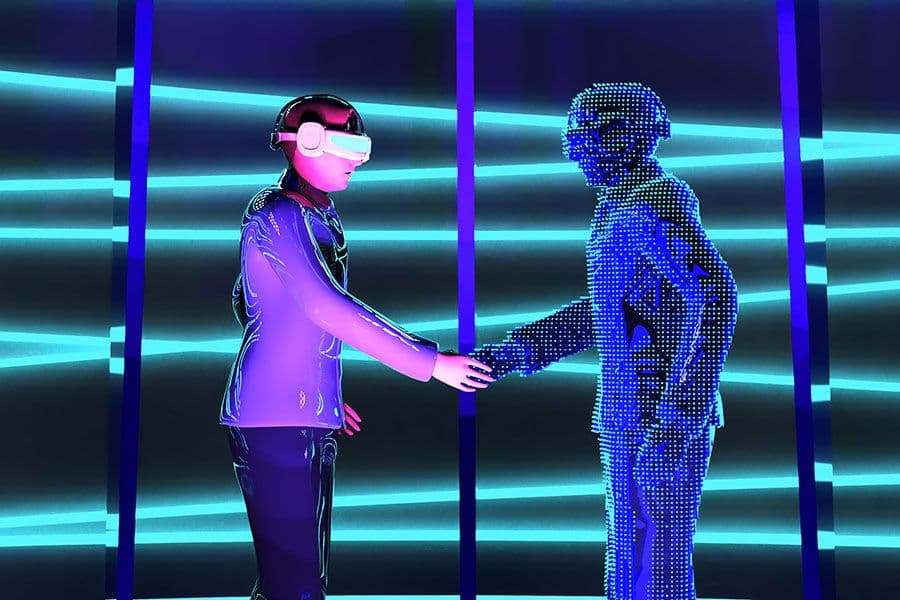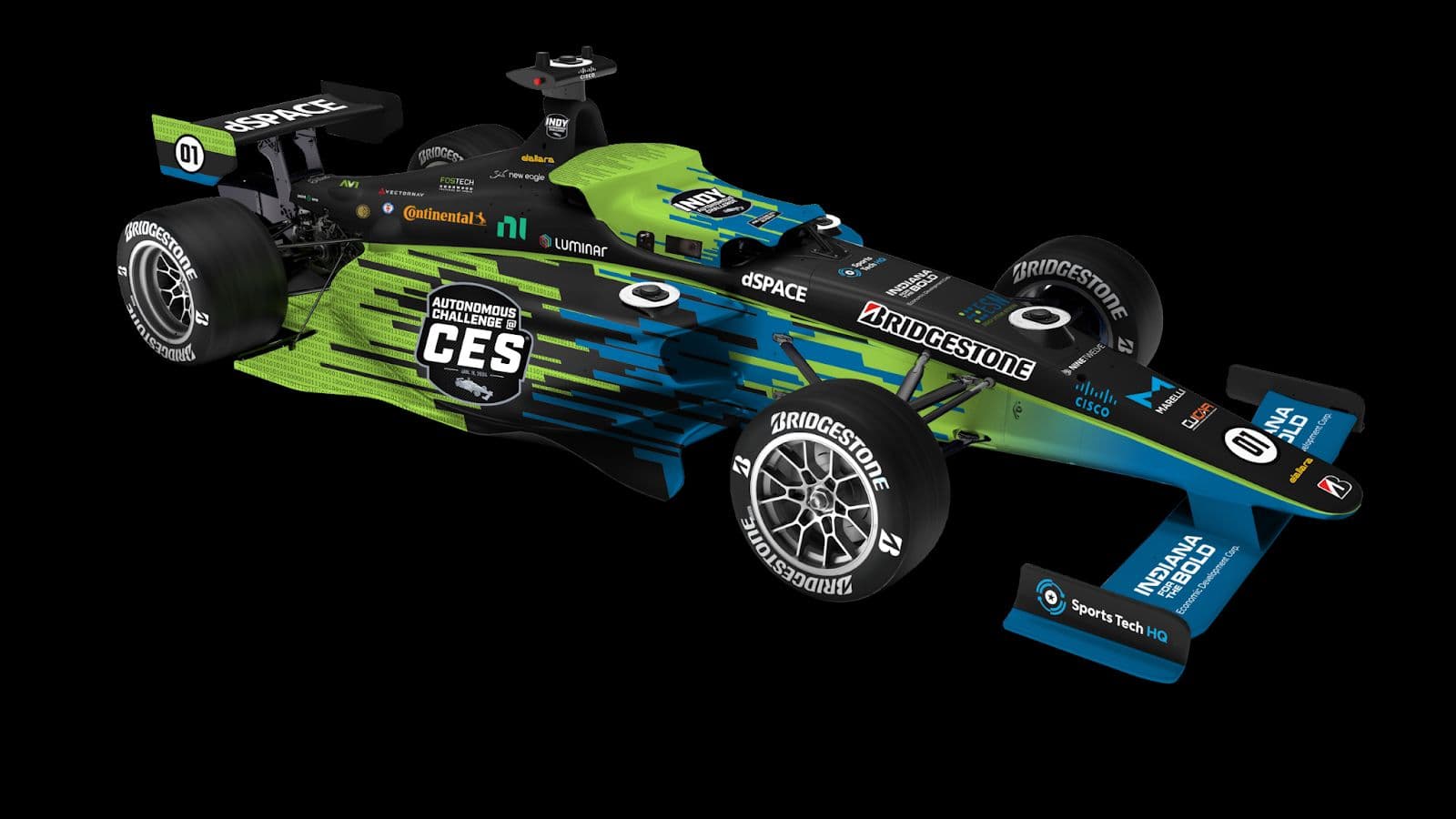Research
Feb 8, 2024An Exploration of the Industrial Metaverse
The Industrial Metaverse represents a cutting-edge fusion of virtual and physical realities within the industrial sector, propelled by the integration of innovative technologies such as virtual reality (VR), augmented reality (AR), artificial intelligence (AI), and machine learning.
The Industrial Metaverse is like a shared online space where the real and digital worlds converge in harmony. Here, businesses and builders can use computers to explore and work with digital simulations of machines, products, and workspace environments.
At the heart of this vision lies the concept of 'digital twins', which serve as precise virtual mirrors of physical entities that can be managed and optimized remotely. This audacious framework allows for unrivaled experimentation and optimization in the virtual domain, drastically reducing the reliance on physical prototypes. Through the manipulation of virtual time, simulation of environmental factors like airflow, and monitoring of conditions such as temperature, the Industrial Metaverse offers a sandbox for innovation before manifesting into reality.

The Core Technologies Powering the Industrial Metaverse
The Industrial Metaverse enables a fusion of the digital and the physical, allowing workers and managers to employ virtual and augmented reality tools for the visualization and simulation of complex industrial processes. This technological integration facilitates the early detection of potential safety hazards and fosters improvements in operational efficiency. Practical applications are vast and varied; engineers might leverage virtual reality headsets to scrutinize and test new product designs in a virtual environment before physical prototypes are constructed, while factory workers could utilize augmented reality glasses to receive dynamic, real-time assembly instructions, effectively bridging the gap between digital planning and physical execution.

The financial implications of these technological advancements are substantial, with revenues for industrial digital twin, simulation, and extended reality projected to hit $22.7 billion by 2025. This growth is driven by the deployment of advanced tools including artificial intelligence, machine learning, edge computing, and extended reality, all aimed at accelerating the pace of digital transformation within the industrial sector. Such forecasts underscore a growing consensus among major corporations regarding the Industrial Metaverse's potential to redefine the design, construction, and management of physical systems, steering them towards greater safety, efficiency, and sustainability.
Companies at the Forefront of the Industrial Metaverse
What distinguishes the Industrial Metaverse is the integration and synergy of several advanced technologies. It marries the capabilities of digital twin technology, software-defined automation, artificial intelligence, and massive data analytics. Consider this: an automated factory can churn out over 2,000 Terabytes of data each month – that's equivalent to half a million movies! In the Metaverse, this data doesn't just sit idly; it's dynamically presented in real-time through immersive AI displays.

Collaborative efforts are the backbone of this venture, as echoed by Siemens' mantra, "The future is all about collaboration". Siemens has joined forces with Microsoft to promote cross-industry AI adoption, showcasing their collaboration at the “Consumer Electronics Show” (CES) this year with the announcement of the Siemens Industrial Copilot. This AI-powered assistant, developed jointly using Microsoft’s Azure OpenAI Service and Siemens’ Xcelerator platform, is designed to enhance human-machine collaboration and productivity across various sectors.
A notable milestone in this journey is the partnership between Microsoft and NVIDIA in March 2023, aimed at democratizing access to the Industrial Metaverse and AI supercomputing resources through the cloud. This collaboration seeks to leverage Microsoft's Azure service to host two novel cloud offerings, with NVIDIA providing the computational muscle.
Siemens and Amazon Web Services (AWS) are leading the charge in the Industrial Metaverse by making generative AI more accessible to industries through their collaborative efforts. AWS offers MENDIX, a low-code process design tool that simplifies access to the Industrial Metaverse and a wide range of AI models. This partnership is enhancing software development by incorporating Amazon Bedrock into Siemens' Mendix platform, allowing customers to create or upgrade applications with generative AI, addressing skilled labor shortages and accelerating digitalization.
Sony is also set to revolutionize next-gen Industrial Metaverse design by providing immersive spatial engineering hardware, merging Siemens Xcelerator software with Sony's advanced spatial content creation system. This partnership aims to foster more interactive engineering experiences, enhancing the creative process for designers and engineers within the Industrial Metaverse.
This collaborative spirit is further exemplified by the Alliance for OpenUSD, working on Universal Scene Description to standardize digital twin environments, further supporting the development of the Industrial Metaverse. Red Bull Racing, in partnership with Siemens Digital Industries Software, is leveraging these technological advances to achieve unprecedented collaboration, efficiency, and speed in F1 design and optimization.
These collaborations exemplify the dynamic ecosystem driving the Industrial Metaverse forward, combining low-code development, generative AI, immersive engineering, and digital twins to redefine innovation across industries.

Application and Impact
Digital twin technology is rapidly advancing from a once elusive concept to a practical tool, propelled by the developments in Natural Language Processing (NLP). In the automotive industry, pioneers such as BMW and the INDY Autonomous Challenge (IAC) are utilizing digital twin technology to innovate vehicle development and design. The IAC, in its third iteration at the Consumer Electronics Show (CES), highlights the capabilities of fully autonomous motorsport. Teams from seventeen global universities compete in a virtual racing environment, demonstrating the future of motorsports. This competition is powered by D Space and NVIDIA, showcasing how digital twin technology can simulate complex, real-world scenarios for groundbreaking applications.

“The IAC AV-24 is the most technologically advanced, fastest autonomous racecar ever assembled with a bullet-proof package of equipment, including a host of lidar, radar and optical cameras sensors, converging with screamingly quick on-board rugged-edge computing and communications, coupled with cutting-edge artificial intelligence algorithms.” (Source: IAC)
The Future of the Industrial Metaverse
The race to revolutionize industrial digitalization has taken a significant leap forward with the advent of the Industrial Metaverse, an area that extends beyond the commonly cited vision of Mark Zuckerberg's virtual playground. This emergent domain is propelling the world's largest corporations, alongside a diverse range of smaller entities, to explore the integration of virtual and augmented reality technologies within industrial settings. The aim is to harness these innovations not just for the enhancement of digital experiences but to fundamentally transform operational efficiencies, safety protocols, and design methodologies in the physical world.
About Chain
Chain is a blockchain infrastructure solution company that has been on a mission to enable a smarter and more connected economy since 2014. Chain offers builders in the Web3 industry services that help streamline the process of developing, and maintaining their blockchain infrastructures. Chain implements a SaaS model for its products that addresses the complexities of overall blockchain management. Chain offers a variety of products such as Ledger, Cloud, and NFTs as a service. Companies who choose to utilize Chain’s services will be able to free up resources for developers and cut costs so that clients can focus on their own products and customer experience. Learn more: https://chain.com.
Connect with Chain for the latest updates:
X (Previously Twitter): x.com/Chain
Facebook: facebook.com/Chain
Instagram: instagram.com/Chain
Telegram: t.me/Chain
TikTok: tiktok.com/@Chain
Youtube: youtube.com/Chain
Chain News & Updates
Latest News & Updates
Sign up for the Chain Newsletter - a weekly roundup of new platform features and the latest from the industry.
